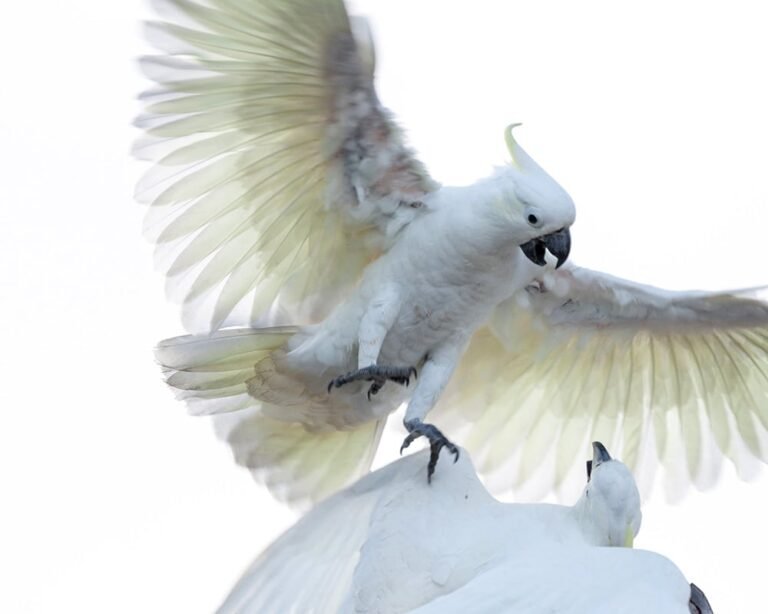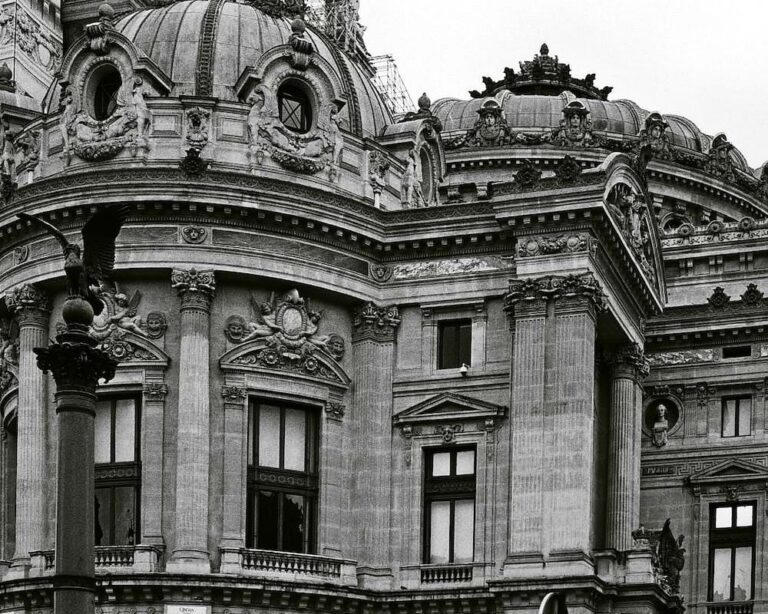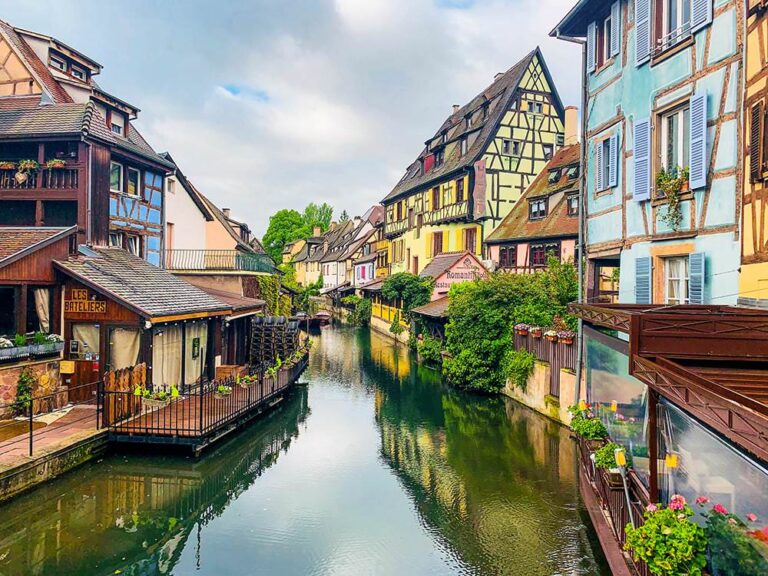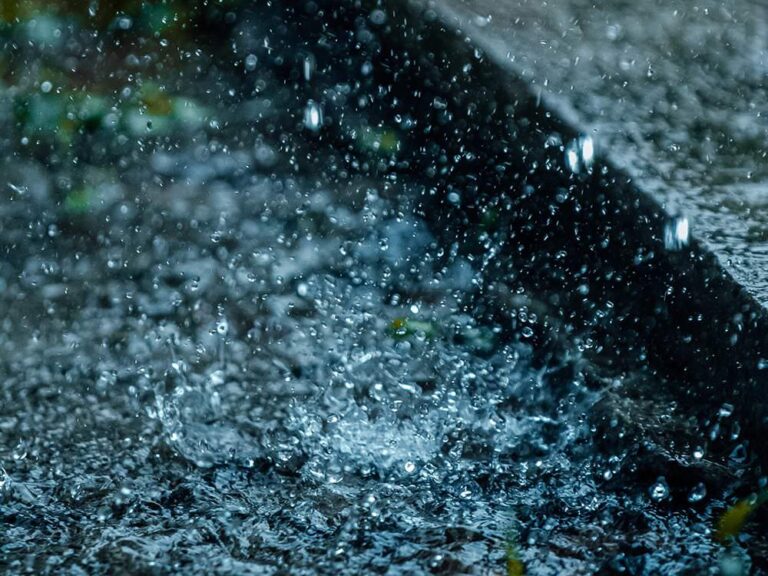Colours
Colours in French are adjectives. They are placed after the noun they describe. So a blue sky is “un ciel bleu.” They must also agree in number and gender with the noun they describe. So “purple flowers” would be “des fleurs violettes.”
| Colour | Masculine | Feminine |
| black | noir | noire |
| white | blanc | blanche |
| red | rouge | rouge |
| blue | bleu | bleue |
| yellow | jaune | jaune |
| orange | orange | orange |
| green | vert | verte |
| purple | violet | violette |
| pink | rose | rose |
| brown | marron | marron (yes, this is correct) |
| grey | gris | grise |
Dark & light colours
If you want to describe a colour as “dark” or “light,” add “foncé” (dark) or “clair” after the name of the colour. These two words must also agree in number and gender with the noun they describe. So a light blue sky would be “un ciel bleu clair,” while dark purple flowers would be “des fleurs violettes foncées.”
Bluish, whitish, reddish
If you want to describe something as “reddish” rather than “red,” you add the suffix “-âtre” to the colour name. Some of the names change, while others ignore the rule completely, so here is a list:
| Colour | Masculine | Feminine |
| blackish | noirâtre | noirâtre |
| whitish | blanchâtre | blanchâtre |
| reddish | rougeâtre | rougeâtre |
| blueish | bleuâtre | bleuâtre |
| yellowish | jaunâtre | jaunâtre |
| orangish | orangé, orangeâtre | orangée, orangeâtre |
| greenish | verdâtre | verdâtre |
| purplish | violacé | violacée |
| pinkish | rosâtre | rosâtre |
| brownish | brunâtre | brunâtre |
| greyish | grisâtre | grisâtre |






